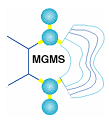Why Should I Put my Results into a Database? – Challenges, FAIR Practices and Modelling
Thomas Allam and Jeremy Frey
University of Southampton
In academia, a large proportion of data sharing and analysis is conducted using spreadsheets. In this talk, we will discuss the advantages that come with the implementation of FAIR (Findable, Accessible, Interoperable, and Re-usable) databases to structure and share interdisciplinary siloed data from across multiple research groups. We will discuss our experience setting up and using databases in academia and the challenges and benefits of doing so.
Implementing a database to siloed research data takes a large amount of time to gather the data as well as the metadata (spectra and conditions) necessary to insure any computational modelling is trustworthy. Backdating previous experiments can be challenging. However, once in a database, the data is made usable by computers allowing for the implementation of computational modelling. These models can be used to guide and speed up research. Finally, tools and user interfaces can be built on the database to increase the data shareability and ease of use for the researchers.


